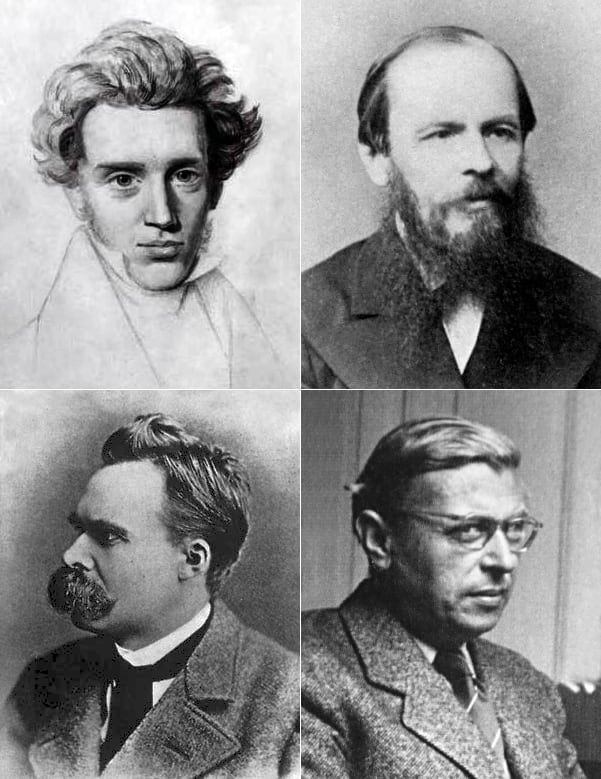Existentialism is a philosophical school of thought that came into prominence primarily during the late 19th and early to mid-20th centuries. Although the philosophers who contributed to existentialism had significant differences in their teachings and beliefs, they were united by a common core principle: the focus on the individual human being, not just as a thinker but as a multifaceted entity that feels, acts, and lives. The objective of this article is to provide an in-depth explanation and understanding of existentialism, to simplify the language for better comprehension, and to present it in a manner that distinguishes it from its original textual sources.
Origins of Existentialism
Existentialism is rooted in the works of various philosophers from the late 19th century onwards. It should be noted that while some existentialist ideas can be traced back to the likes of Søren Kierkegaard and Friedrich Nietzsche, it was only in the 20th century that existentialism as a formal school of thought took shape. Philosophers like Jean-Paul Sartre, Albert Camus, and Simone de Beauvoir are often cited as leading figures in shaping existentialist philosophy.
Core Principle: The Individual Human Being
The Multi-Dimensional Human Subject
The cornerstone of existentialism is the emphasis on the human individual. Unlike other philosophical paradigms that may focus on rationality, morality, or the cosmos, existentialism starts with the human subject. However, it doesn’t just regard humans as thinking entities; it also considers them as beings who experience emotions, make choices, and engage with life actively.
The Acting, Feeling, Living Entity
In existentialism, the human individual isn’t merely a vessel of thought; he or she is an agent who acts, a sentient being who feels, and a living entity who experiences life in all its complexities. Existentialism takes into account not only rationality but also emotions like fear, love, despair, and joy. The philosophy examines the choices people make and the actions they take, all set against the backdrop of a life lived within a specific societal and cultural context.
Philosophical Differences Among Existentialists
Despite a shared focus on the individual, it’s important to note that existentialist philosophers did not agree on all aspects of what this meant. For instance, Sartre’s existentialism has atheistic leanings, while Kierkegaard’s existential thought often explored religious themes. Additionally, the means by which an individual should confront existential issues varied from one philosopher to another.
Significance and Impact
Existentialism has had a broad influence, impacting not just philosophy but also literature, psychology, and even political thought. Its primary focus on individual human experience makes it a philosophy that continues to be debated and explored today.
Conclusion
To sum up, existentialism is a philosophical tradition that concentrates on the human individual as an entity that thinks, feels, acts, and lives. Despite the varied doctrines of philosophers who contributed to existentialism, the philosophy fundamentally seeks to explore the complexities of human existence through the lens of individual experience. Whether one approaches existentialism through a religious, atheistic, or any other viewpoint, the focus remains constant: the multi-dimensional human individual navigating through the vicissitudes of life.
While the original text presented existentialism in a succinct manner, this comprehensive guide aims to provide a deeper understanding of the topic, offering a nuanced view that encapsulates its complexities, its various contributors, and its enduring relevance in contemporary discourse.
This detailed explanation should serve to simplify the subject matter for a broader audience while maintaining factual accuracy and intellectual integrity. By delving into its origins, core principles, and impact, the article endeavors to present existentialism in a manner that is both easy to read and informative.





